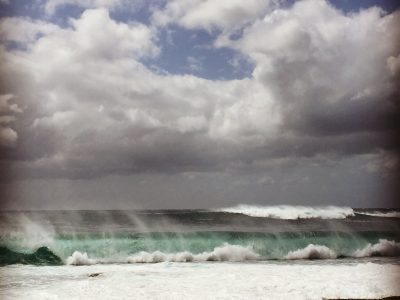FUTURE EARTH AUSTRALIA: SUSTAINABLE OCEANS AND COASTS NATIONAL STRATEGY 2021-2030
During 2021 the Australian Academy of Science, with the support of the Lords Mayor’s Charitable Foundation, produced a remarkable report which all Australian’s interested in the future of our “blue ribbon” should read and digest. The report was produced by the Future Earth Australia (FEA) secretariat ably led by Tayanah O’Donnell and Taryn Laubenstein, assisted by an expert working group. I was fortunate to be a member of the group jointly chaired by Nick Harvey and Beth Fulton. Many others outside this group were consulted during the process of preparing the document offering their time and knowledge.
What underpins the report is the concept of interconnectedness between land and sea acknowledged as integral to First Nation culture and carried forward to a vision of benefit to all Australians. The vision is to “ensure healthy coasts and oceans for a just and environmentally sustainable future”. This encapsulates the concept of “blue ribbon” critical to the lives of so many living by the sea in absorbing values of waterways, coastal lands, and nearby oceans. It recognises both diversity and fragility of that which encircles us forming “an integral part of our livelihoods, identities, and wellbeing”.
FEA strategy notes the threats from a number of pressures with climate change posing the most serious of all threats. It sees a need to move from a future of deterioration to one of sustainability. This requires an outlook of pursuing opportunities including support for:
• A robust blue economy that uses sustainable techniques to ensure long-lasting prosperity for many generations to come.
• Resilient coastal communities encompassing both people-centred communities and ecosystems that are equipped for changes and damaging events.
• Sustained cultural heritage, especially Aboriginal and Torres Strait Islander heritage that connects people and their health and wellbeing to the land, coasts, and oceans.
From this emerged seven recommendations for governments and all Australians to consider:
1. Empower indigenous leadership.
2. Build resilient communities.
3. Decarbonise the blue economy.
4. Collaborative governance.
5. Make informed decisions.
6. Support stewardship.
7. Prioritise diverse values.
Since the release of the report the FEA team has been active in consulting various government entities, both federal and state including key politicians. Its messages have been well received especially those related to the blue economy. The timing is appropriate at a federal level as we head towards an election. I was particularly enthused by the opportunity to demonstrate how the report offers practical outcomes. Specifically, this includes:
1. Showing just where and how international initiatives in progressing investment in the blue economy are taking place.
2. Highlighting special advantages presented by Australian marine and coastal environments in stimulating growth in the blue economy.
3. Defining barriers and risks to investing sustainably in the blue economy, including those linked to climate change.
4. Examining possible need for new governance/regulatory arrangements for improving the effectiveness of blue economy initiatives in both Commonwealth and state/territory waters recognising rights of indigenous communities and complexities of existing state/territory and federal law.
One clear action that could facilitate outcomes such as these is the establishment of a permanent “national oceans and coasts coordinating office”. Something like this has existed in the past and can be found in other countries. Given all the threats and opportunities that confront the nation’s coasts and seas surely now is the time for providing leadership through a national office that would harmonise diverse policies and programs of state and local governments. I expect advocacy along these lines building on the FEA document will continue in 2022.
Bruce Thom
Words by Prof Bruce Thom. Please respect the author’s thoughts and reference appropriately: (c) ACS, 2022. For correspondence about this blog post please email austcoastsoc@gmail.com
#208


 Sunflowers and hope
Sunflowers and hope